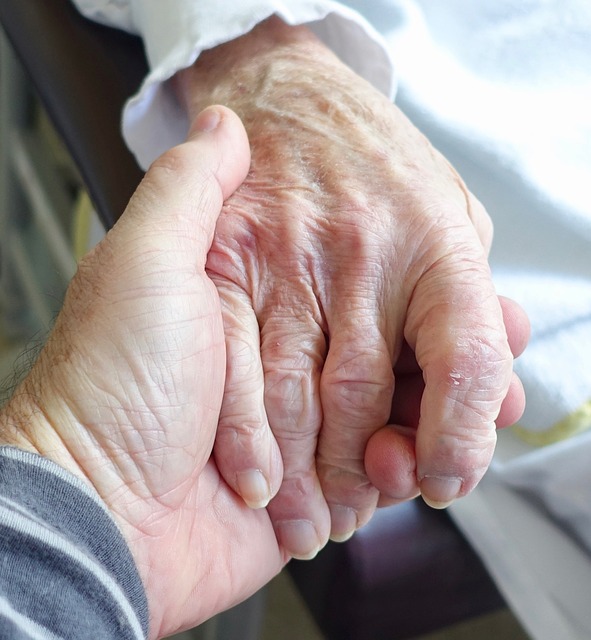dvocates for Shared Living applications provide assistance to individuals with varying skills and needs in a caring atmosphere. Exotic Living usually matches individuals with similar disabilities to folks who offer care in a comparable environment, such as a relative. People gain greater independence with shared living arrangements, while also having the comfort and tranquility of another person who also provides for their requirements. The program aims to help these folks live a better lilictions po hsidiidua kshaosuaeit is a good option compared to residing in institutions or group homes. The security of shared dwelling may give
The Benefits of Shared Living and Independent Living
amilissurance they are making the ideal decisions when it comes to providing care for a family. If the resident needs to pursue his or her liberty, there are Housemates available who’d willingly choose the role of caretaker for the elderly citizen. For seniors, a supportive health care is somebody they already know and trust, which considerably reduces the stress of having to learn how to care for one’s own personal needs.
For singles, there are several benefits to Exotic Living. First, housemates are usually searching for one another, thus there is a greater feeling of belonging to everyone involved. Second, sharing a distance and common pursuits reduces loneliness and promotes morale. Lastly, housemates benefit from getting a temporary residence away from their usual routine, which is often required when a handicapped senior moves back in with relatives or wants to move into assisted living.
The Benefits of Shared Living and Independent Living
Housemates also play an integral role in keeping a Healthy and disability support melbourne way of life. Many elderly adults begin to feel uneasy in their own homes, as they don’t feel they belong or have much interaction with others. With shared livingfamily members or other caregivers are easily available to help an elderly adult in their area, giving them a sense of safety and a feeling that they are valued as a member of a societal group. Housemates may also be trained to look after an elder’s medications and help make sure that he or she receives enough water and food. These increased interactions not only provide more support, but can also reinforce the bond between residents and family members who may be less able to offer psychological, social or physical assistance.
When studying the pros and cons of shared living instead of some permanent living situation, some factors have to be considered. One is the cost of sharing a house with other people, like roommates or other relatives who are sharing the expenses. If the retired senior doesn’t wish to have another area or share household expenses, then shared living may not be the most suitable choice.
The Benefits of Shared Living and Independent Living
Another drawback associated with sharing a private home with other people is the lack of independence, privacy and control over one’s own life. This lack of management is especially true for individuals who have developed certain kinds of disabilities or other psychological challenges that may be severely affected by living in a shared environment. With shared alive, there’s not any one to check on the senior or make certain that the senior is doing okay; many seniors with psychological challenges find it difficult to keep their independence while in this type of situation. Additionally, the existence of other people with developmental disabilities may also be embarrassing and overwhelming, especially when the person with developmental disabilities lives alone.
Private houses might be more welcoming to those with developmental disabilities, but they still provide fewer services and choices for the senior. The occurrence of a support system and the supply of solutions tailored to satisfy certain requirements make private homes the most appropriate alternative for people who want to maintain a high degree of personal control over their lives. The interaction with others helps the handicapped individual to maintain self-esteem, which can be essential for maintaining mental health. In the event the senior with developmental disabilities lives in common living arrangements, he or she may feel alone and isolated, and thus may have reduced self-esteem.

Because of this, most senior caregivers choose to stay in a shared living environment even when the demand for separate living is greater. Some individuals with physical constraints might need to use a walker, wheelchair, cane or similar assistance to get about; they might also benefit from companionship and normal help with housework and errands. For this reason, shared dwelling providers often give an onsite caretaker to help the disabled resident to maintain their dignity and liberty. So long as the rewards supplied by the shared living supplier meet the needs of their senior and the requirements of their caregiver(s), then the customer’s independent lifestyle can endure with no severe disturbance.
The Benefits of Shared Living and Independent Living
There are a few important advantages of Common Living which appeal most urges. For the disabled or weak, it is a good option compared to residing in institutions or group homes. The security of shared dwelling may give families reassurance they are making the ideal decisions when it comes to providing care for a family. If the resident needs to pursue his or her liberty, there are Housemates available who’d willingly choose the role of caretaker for the elderly citizen. For seniors, a supportive health care is somebody they already know and trust, which considerably reduces the stress of having to learn how to care for one’s own personal needs.
For singles, there are several benefits to Exotic Living. First, housemates are usually searching for one another, thus there is a greater feeling of belonging to everyone involved. Second, sharing a distance and common pursuits reduces loneliness and promotes morale. Lastly, housemates benefit from getting a temporary residence away from their usual routine, which is often required when a handicapped senior moves back in with relatives or wants to move into assisted living.
Housemates also play an integral role in keeping a Healthy and positive way of life. Many elderly adults begin to feel uneasy in their own homes, as they don’t feel they belong or have much interaction with others. With shared livingfamily members or other caregivers are easily available to help an elderly adult in their area, giving them a sense of safety and a feeling that they are valued as a member of a societal group. Housemates may also be trained to look after an elder’s medications and help make sure that he or she receives enough water and food. These increased interactions not only provide more support, but can also reinforce the bond between residents and family members who may be less able to offer psychological, social or physical assistance.
When studying the pros and cons of shared living instead of some permanent living situation, some factors have to be considered. One is the cost of sharing a house with other people, like roommates or other relatives who are sharing the expenses. If the retired senior doesn’t wish to have another area or share household expenses, then shared living may not be the most suitable choice.
Another drawback associated with sharing a private home with other people is the lack of independence, privacy and control over one’s own life. This lack of management is especially true for individuals who have developed certain kinds of disabilities or other psychological challenges that may be severely affected by living in a shared environment. With shared alive, there’s not any one to check on the senior or make certain that the senior is doing okay; many seniors with psychological challenges find it difficult to keep their independence while in this type of situation. Additionally, the existence of other people with developmental disabilities may also be embarrassing and overwhelming, especially when the person with developmental disabilities lives alone.
Private houses might be more welcoming to those with developmental disabilities, but they still provide fewer services and choices for the senior. The occurrence of a support system and the supply of solutions tailored to satisfy certain requirements make private homes the most appropriate alternative for people who want to maintain a high degree of personal control over their lives. The interaction with others helps the handicapped individual to maintain self-esteem, which can be essential for maintaining mental health. In the event the senior with developmental disabilities lives in common living arrangements, he or she may feel alone and isolated, and thus may have reduced self-esteem.

